After the US banned the sale of high-performance AI chips to China in October 2023, Nvidia engineers quickly designed a new product line to comply with the new regulations.
The US company faces a bigger problem, though: Chinese cloud businesses—some of Nvidia’s biggest customers globally—are not interested in buying those “junk” AI chips.
Alibaba and Tencent are among China’s largest cloud companies that have been testing samples of Nvidia’s new chips since last November. They have reportedly ordered fewer chips from Nvidia this year than they originally planned, according to the WSJ.
In the short term, Nvidia's downgrading of its processors will narrow the performance gap with domestic alternatives, making Chinese-made chips increasingly attractive to buyers.
Alibaba and Tencent are shifting some orders for advanced semiconductors to domestic companies like Huawei Technologies and relying more on chips they develop themselves. Baidu and ByteDance are doing the same.
In the long term, Chinese buyers are uncertain about Nvidia's ability to continue supplying, as US regulators have pledged to review chip export controls regularly and could further tighten performance limits.
Tech companies are adapting their business strategies to prepare for a future with less access to Nvidia products and to avoid the costly process of constantly having to adapt their technology to new chips.
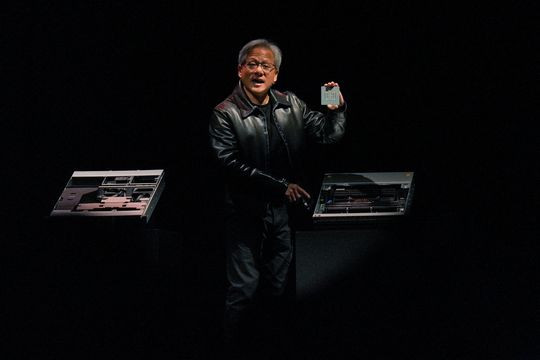
For Nvidia, navigating the waters between U.S. regulators and Chinese customers is becoming more difficult. The company has yet to fulfill billions of dollars in chip orders, while China is one of its biggest markets, accounting for about a fifth of its revenue.
Demand for Nvidia chips is outpacing supply, but geopolitical tensions pose a long-term risk of losing sales in the world’s second-largest economy, which has made AI development a strategic priority.
Chinese cloud businesses currently buy about 80% of Nvidia’s high-end AI chips, and that could fall to 50%-60% in the next five years, said Frank Kung, an analyst at research firm TrendForce. He added that future tightening of U.S. chip controls would put pressure on Nvidia’s China sales.
Nvidia said it is looking for ways to provide products that comply with US rules to customers around the world . It does not see a short-term financial impact from restrictions on AI chip sales to China because it can find other buyers. But in 2023, CFO Colette Kress warned that in the long term, a ban on AI chip sales in China would make it impossible for the US industry to compete and lead in one of the world's largest markets.
Switch to Huawei chips
Over the past two years, the administration of US President Joe Biden has imposed two rounds of export sanctions to restrict China's access to chips and advanced technology that the US says Beijing could use to enhance its military and surveillance capabilities.
Nvidia CEO Jensen Huang still hopes to supply high-end processors to China and is working with customers in China to obtain export licenses.
After the initial restrictions in October 2022, Nvidia modified chips sold in China to reduce their performance to below the threshold that would require U.S. government oversight, and it sold about $1 billion worth of such chips to Chinese customers in 2023.
As the US continues to restrict Nvidia chip exports to China without a license, the chipmaker has been developing a new line of weaker processors for Chinese buyers that it plans to release early this year, according to the WSJ.
Last month, Nvidia launched the GeForce RTX 4090 D, a revised version of its flagship gaming chip that was tweaked following the latest US restrictions.
Chinese companies have been testing prototypes of Nvidia’s most powerful AI chip, the H20, which efficiently transfers data between multiple processors, making it a better option than homegrown alternatives.
However, testers said they needed more H20s to simulate the same computing power as Nvidia's previous chips, increasing the cost.
Like the US chips, China's most advanced chips are capable of handling inference — where a trained AI model makes predictions — and less complex training tasks.
Huawei, which Nvidia's CEO has acknowledged as a "formidable competitor" in China, is gaining ground thanks to the new situation.
Huawei has received orders for at least 5,000 Ascend 910B chips from major Chinese internet companies in 2023, according to the WSJ. The chip is considered China's closest available alternative to Nvidia's high-performance A100 chip, which is banned from export.
The chips will be delivered throughout 2024 as Huawei faces production constraints due to US sanctions, the source said.
Chinese procurement officials, such as those at state-owned carriers, have called for the use of domestic chips like Huawei’s. China Telecom bought about $390 million worth of AI servers equipped with Huawei chips in October 2023, while China Unicom spent at least $20 million in 2022, according to company procurement documents.
Huawei has been working to expand its software ecosystem and plans to launch a new high-end AI chip as early as the second half of 2024.
Several government-backed AI computing centers have used Huawei chips since the US imposed restrictions in 2022.
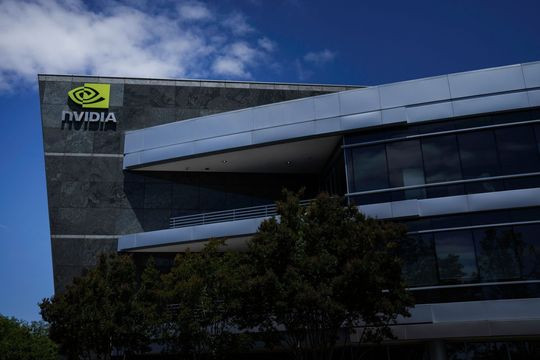
Alibaba’s chip unit, T-Head, is also developing a new AI processor under the Hanguang brand, the people said. “If restrictions get tighter in the next few years, you should start thinking about alternatives now,” said a senior executive at Alibaba Cloud.
The AI boom early last year fueled demand for Nvidia’s advanced chips as Chinese companies and startups raced to develop their own large language models. Now, many smaller players are scaling back efforts and shifting their focus to AI applications.
Kenneth Yang, co-founder of a Shanghai-based health care AI startup, said he plans to skip Nvidia’s latest chips and instead rent AI processing power from Baidu or Huawei.
“It's about spending money wisely,” said Yang, who is developing a nursing app.
Engineers at Chinese tech companies say Nvidia chips will remain a priority purchase over the next 12 months, given Nvidia's broader product ecosystem and as local alternatives continue to be in short supply.
In the long run, US restrictions will likely push China to develop its own technology, said Kevin Xu, founder of hedge fund Interconnected Capital.
“Once the current stockpiling phase is complete, Nvidia’s China business will become the scapegoat,” he said.
(According to WSJ)
Source





![[Photo] Prime Minister Pham Minh Chinh chairs the meeting of the Government Party Committee Standing Committee](https://vphoto.vietnam.vn/thumb/1200x675/vietnam/resource/IMAGE/2025/8/23/8e94aa3d26424d1ab1528c3e4bbacc45)

![[Photo] General Secretary To Lam attends the 80th Anniversary of the Cultural Sector's Traditional Day](https://vphoto.vietnam.vn/thumb/1200x675/vietnam/resource/IMAGE/2025/8/23/7a88e6b58502490aa153adf8f0eec2b2)



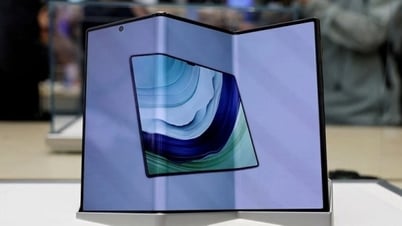







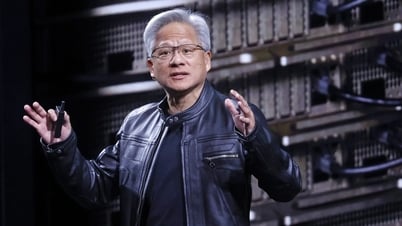


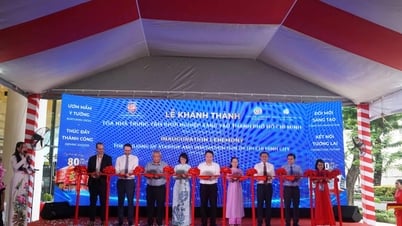
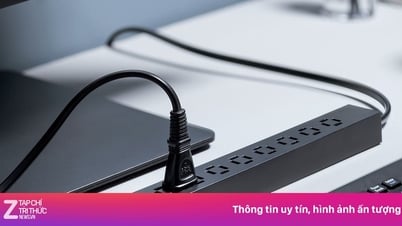


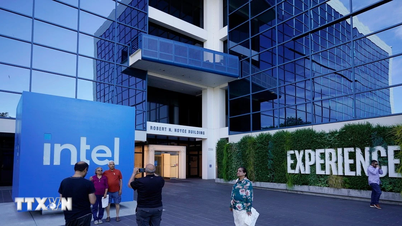



























































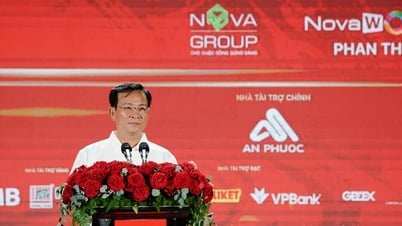
















Comment (0)